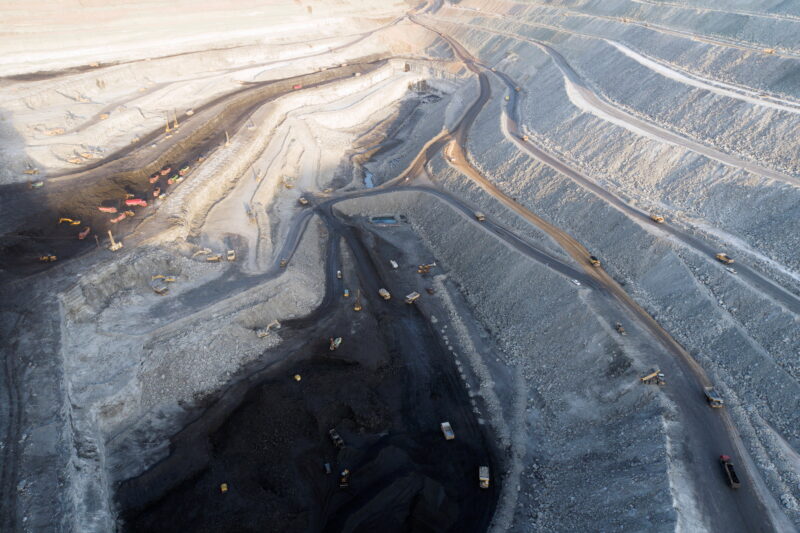Mongolia has deposits of copper, coal, gold, tin, tungsten, silver, iron and many other minerals. All these resources make the country very important in terms of international supplies of raw materials
Mongolia is one of the largest landlocked states in the world. Its main wealth is given by the vast mineral deposits that dot the territory and which attract many foreign actors. Mongolia’s position, squeezed between China and Russia, has strongly influenced its geopolitics, seeking a close alliance with Moscow.
Having been part of the Chinese Empire for many centuries has conditioned its perception of Beijing, considered as a colonial power. The thesis of this perception would be linked to the fact that the Chinese imperial dynasty was partly Mongolian and, therefore, Mongolia would have been part of the Chinese Empire as it was loyal to the dynasty. When the latter was deposed in 1911, Mongolia decided to free itself from the Han domination and become independent, maintaining a policy careful to limit Beijing’s interference as much as possible. Mongol governments have moved in this direction, with Ulaanbaatar requesting Moscow several times to be annexed as a Soviet republic. These requests were refused by Moscow in order not to damage its relations with China, even though Mongolia gravitated sharply into the Soviet orbit.
After the fall of the Soviet Union, however, Moscow’s influence over the country dropped dramatically. This meant that Ulaanbaatar turned to the United States and its Western allies as its new privileged interlocutors. In this way, Mongolia has managed to resist between two giants up to the present day, representing an example of democracy that is very advanced compared to its neighbors and Central Asian countries. Nevertheless, Russia and China continue to exert a strong influence on the country, albeit in different ways.
Stuck in the Chinese supply chain
Mongolia has deposits of copper, coal, gold, tin, tungsten, silver, iron ore, zinc, fluorspar, molybdenum, uranium, natural gas and petroleum, although only around 30% of Mongolia’s territory has been explored. All these resources make the country, “Mine-golia”, very important in terms of international supplies of raw materials. The state which, however, absorbs almost all of Mongolian mineral resources is China. The booming economy of the southern neighbor is slowly capturing Ulaanbaatar in its supply chains. This means that the Mongolian economy becomes increasingly dependent on the Chinese one in terms of exports, suffering from possible shocks in the event of a drop in Chinese demand.
Although the extractive companies are mainly Western and Russian, China is becoming more and more interested in the country, even if Ulaanbaatar is trying in every way to break free from the Chinese embrace, which it considers deadly. The issues of Inner Mongolia, a Chinese autonomous region with more Mongols than Mongolia itself, remained with China after 1911, and Mongolian support for the Dalai Lama are the main points of contrast that still today see the two countries as opposed. In November 2016, after a visit by the Dalai Lama to Mongolia for religious reasons, being the Mongols of Buddhist faith, China reacted harshly. A week after the visit, Beijing imposed fees on commodity imports from Mongolia, charging additional costs on goods.
Mongolian westernization
Although Ulaanbaatar has cultivated very positive relations with Russia, these are affected by the general international downsizing of Moscow after 1991. The lack of interest in Mongolia in recent decades has led to the latter turning to the West for investment and political support. The result has been a slow decline in Russian influence over the country, even if investment projects with Russia persist, especially on logistics. Neighboring Kazakhstan has also initiated a policy of dialogue with Mongolia, above all due to the presence of a strong minority of Kazakhs in the western regions of the country. However, the investment projects generated by the dialogue between Ulaanbaatar and Nur-Sultan have been very limited.
It seems that the country wants to look more and more to the West as a role model both on a political and cultural level. The democratic regime of Mongolia makes it unique in the region, while the ever stronger relations with the United States and Western countries have led to an increase in the use of English in the country. Russian seems to be losing its position, while the Latin alphabet is also beginning to make its way more and more among the young Mongols.
Is it possible that Mongolia wants to abandon Cyrillic, as decided in neighboring Kazakhstan, and definitively embrace the West in the attempt to push back China?





